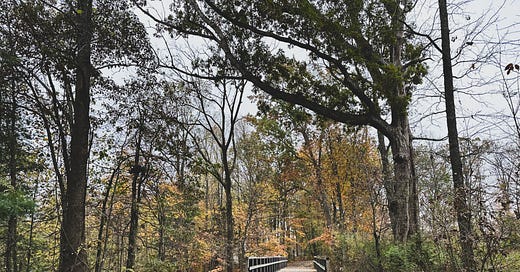My Feet are on the Ground
Resistance with a side of hummus and other musings about this next chapter of our lives together in these so-called United States
I heard him before I saw him, heavy, squishing footsteps painted a picture in my head before he passed me. A large man was walking up behind me on the greenway trail. A woman on the other side peered out from her hoodie at him.
“Good morning!” He said breathlessly to her.
She raised a hand, but was looking at me.
“Good morning!” He huffed out as he passed my meandering steps.
I didn’t reply to him just like I hadn’t replied to the other dozen or so people going the other way that morning. I’d finally emerged from my house and was trying desperately to return to my body. I have a magnificent resting bitch face I’m told, and I was literally looking away from people as they passed, and they still intruded with their good mornings.
He got a couple hundred feet ahead of me and I guess reached his step goal or whatever, because he suddenly turned around like a warplane coming back for another strafing run.
“Have a great day!” He exhaled heavily as he squished back the other wa…
Keep reading with a 7-day free trial
Subscribe to Wild Thriving to keep reading this post and get 7 days of free access to the full post archives.





